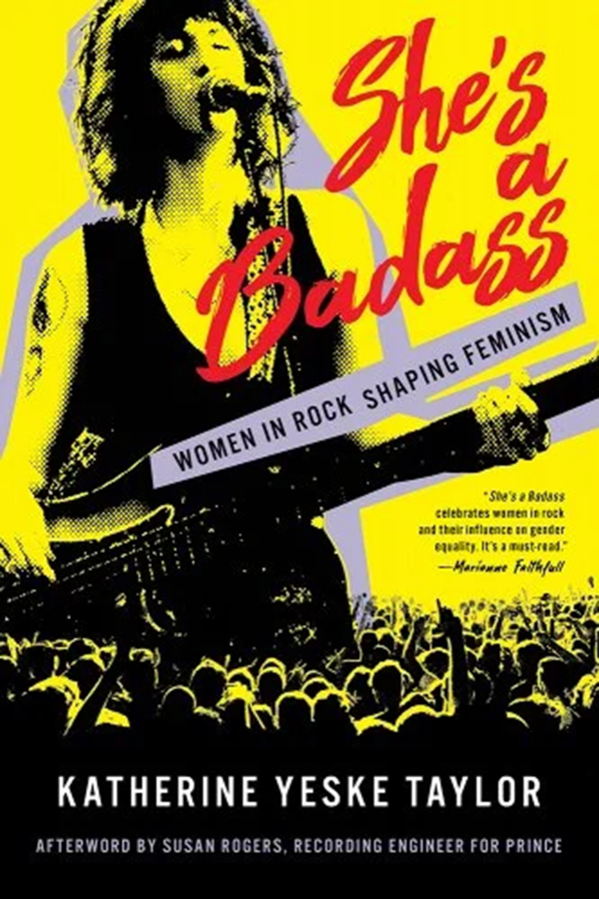ATLANTA — Sandy Springs, Ga., in the 1980s wasn’t exactly a hotbed of countercultural activity, so Katherine Yeske Taylor found her way down to the Little Five Points Pub and Trackside Tavern in Decatur.
She had legitimate reasons to be there: She was interviewing rock ‘n’ roll musicians including DeDe Vogt and Caroline Aiken for the school paper at North Springs High School.
These early experiences led to writing for Flagpole in Athens as a University of Georgia undergrad, a job at Creative Loafing, and a lifelong career as a freelance music journalist, landing stories at such publications as Billboard, Spin and American Songwriter.
An agent suggested the concept for Taylor’s first bona fide book, “She’s a Badass: Women in Rock Shaping Feminism,” and the idea immediately resonated with the Georgia native: “I can take that and run,” she thought.
A lifetime of contacts helped smooth the way for interviews with 20 women whose stories appear in the book, from pint-sized 1970s pioneer and TV star Suzi Quatro to adult contemporary star Paula Cole to Indigo Girl folk-rocker Amy Ray to transgressive noise-rock diva Lydia Lunch. (Interviews she craved but couldn’t secure: Chrissie Hynde and Tracy Chapman.)
Taylor discovered that female artists were subject to the same harassment and prejudice that women in other fields dealt with, but that, despite their scant numbers, they also helped break through some of those barriers.
‘Mostly just venom that I felt’
Some used the hostility to power their creativity.
Taylor relates her conversation with vocalist Ann Wilson, who — with her sister, guitarist Nancy Wilson — helped form the band Heart in 1973. After a concert one evening, a man backstage made a crude suggestion about the relationship between the sisters.
Her anger blossomed into the song “Barracuda.” Said Wilson, “It was mostly just venom that I felt.”
Several musicians mentioned irrational policies at radio stations that claimed they could play only a certain number of female artists every hour, or morning DJs who had a “no chicks” policy.
Taylor sequenced the chapters from the earliest rockers — including Quatro, Wilson and X vocalist Exene Cervenka — to younger musicians, including Canadian Fefe Dobson and Mexican American singer/guitarist Sade Sanchez of L.A. Witch.
She wanted to show that the climate for female artists is improving. “It’s getting better for sure,” Taylor, 50, said from her home in uptown Manhattan. “I hope this book makes it clear that certain things that used to happen a lot don’t happen as much now.”
She also found that among her subjects, there was a wide variety of attitudes about gender politics and many different strategies for dealing with everyday abuse.
Donita Sparks, vocalist/guitarist with the all-female punk band L7, said that despite their anti-establishment attitudes, male punk rockers responded with “vitriol” when she identified as a feminist. “Some men were kind of terrified of us,” she noted.
She praised the younger women who created the “riot grrrl” movement: “Thank gods for Bikini Kill.”
The 1990s band Bikini Kill demanded a “girls to the front” policy to keep the women who went to their shows from getting injured in mosh pits. But Bikini Kill drummer Tobi Vail told Taylor that even the band’s own safety was never assured, recounting an incident at a concert in Boston when a male audience member punched their roadie and knocked her out.
“If you look at history, you can see that progress is not linear,” Vail said. “It goes back and forth.”



